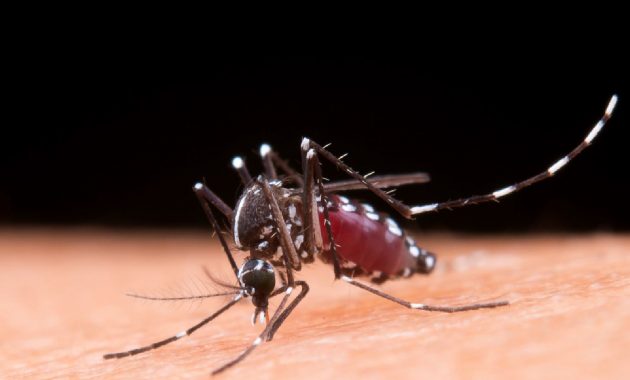Second-time dengue infection is possible. It may be even severe, and symptoms may change too. Know what happens when it strikes twice.
Dengue, a mosquito-borne disease, is sweeping through different parts of the world, including India. Caused by the virus DENV, it is transmitted by the Aedes aegypti mosquito and leads to flu-like symptoms in people who are infected. It has four distinct serotypes (DENV-1, DENV-2, DENV-3, and DENV-4), which means a person can be infected up to four times. Most of the time the symptoms are mild, but severe infection can occur, especially in the case of second-time dengue. It can lead to organ damage, and even death. Know why it can be deadly the second time.
Second-time dengue can be deadly
Millions of people are affected by this mosquito-borne disease. About 100 to 400 million dengue infections occur each year, putting about half of the world’s population at risk of this disease, according to the World Health Organization (WHO).

It is caused by one of the four dengue virus serotypes or versions, which are transmitted through the bites of infected Aedes mosquitoes, particularly Aedes aegypti. You can get immunity to one of the versions once you get infected with it. The good news is that your immune system will be able to spot the infection if it comes around the second time and fight it off. Since your body will know how to fight that specific version, you will not get sick with it again.
“But if you get infected with a different serotype after the first infection, your immune response may help the virus spread more effectively within the body,” says internal medicine and infectious diseases expert Dr Ankit Bansal. This may happen because your immune system is not familiar with the new version of the disease and may make the body react in an aggressive manner. This can further lead to dengue shock syndrome, which is severe dengue and involves bleeding, plasma leakage, and shock. People who get infected for the second time are at a higher risk of severe dengue, which can be life-threatening, as per the WHO. During a study published in the Journal of Microbiology, Immunology and Infection in October 2024, the risk was found to be 7.8 percent in people who were infected the second time. It was just 3.8 percent in people who got infected the first time.
Second-time dengue: Are the symptoms different from the first-time infection?
“Dengue symptoms like high fever, severe headache, pain behind the eyes, joint and muscle pain, and rash, typically appear 4 to 10 days after infection,” says the expert. Symptoms in second infection may be similar initially, but are often more severe. While both infections typically begin with fever, headache, muscle pain, and rash, a second infection increases the risk of severe symptoms.
According to WHO, severe dengue symptoms may include:
- Severe pain in abdomen
- Persistent vomiting
- Rapid breathing
- Bleeding nose
- Bleeding gums
- Fatigue
- Restlessness
- Blood in vomit
- Feeling very thirsty
- Cold and pale skin
These symptoms usually start in the 24 to 48 hours after the fever goes away, according to the US Centers for Disease Control and Prevention.
“This is due to an enhanced immune response called ‘antibody-dependent enhancement’, which makes the body react more aggressively,” says Dr Bansal. So, a second dengue infection requires more careful monitoring and immediate medical intervention, especially if the symptoms intensify.
Second-time dengue: Who is at a higher risk?
Preventing repeated infections is crucial as subsequent infections are often more severe and can result in life-threatening complications. The following are at a greater risk:
- People who live in or travel to endemic regions are at high risk of repeated dengue infections due to frequent exposure to the virus.
- People with weak immune systems, such as young children and the elderly, are more susceptible to complications from a second infection.
- Those previously infected with one serotype of DENV are at greater risk of severe symptoms if they contract another serotype.

How to treat severe dengue?
There is no medicine to treat dengue fever, but acetaminophen or paracetamol usually helps to manage the pain, says the expert. Ibuprofen or aspirin are not recommended, as they can increase the risk of internal bleeding, which can be life-threatening. People with severe dengue need immediate medical attention, often involving hospitalisation. The treatment focuses on:
- Maintaining proper fluid levels to counteract dehydration and prevent shock, as well as monitoring for signs of bleeding and organ function issues.
- Intravenous (IV) fluids and electrolyte management are commonly used to stabilise infected people.
- In case of severe bleeding, blood transfusions may be necessary.
Also Read: Dengue fever: Papaya leaf extract is a home remedy you can try
“Continuous monitoring by doctor is essential, especially during the critical phase when complications like plasma leakage, severe bleeding, and organ impairment are most likely to occur,” says the expert. After recovering, people who are infected may very feel tired for several weeks.
To avoid this, make efforts to prevent second-time dengue infection by reducing exposure to mosquitoes, use mosquito repellents, wear long-sleeved clothes, and install window screens. Do away with standing water around your home, as it serves as a breeding ground for the Aedes mosquitoes. While sleeping, don’t forget to use mosquito nets and insecticide-treated bed nets.
#Secondtime #dengue #deadly


